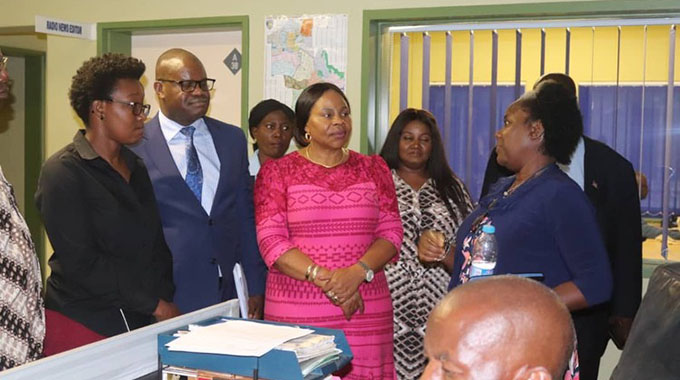Unicef head jets in to assess Idai

Tendai Mugabe and Fidelis Munyoro
THE United Nations Children’s Fund (Unicef) yesterday despatched its regional director for Eastern-Southern Africa Leila Pakkala to Zimbabwe to assess how the UN body can assist victims of Cyclone Idai.
Ms Pakkala met Vice President Kembo Mohadi yesterday at Munhumutapa Offices in Harare.
“This meeting is about Cyclone Idai the one that has hit Manicaland, Masvingo, Mashonaland East and Midlands.
“The people that you are seeing are coming from our African regional office in Nairobi, Kenya. She has come to assess the situation for herself so that they can assist us to mitigate the problems we have encountered and that the people have encountered in Chimanimani.
“That is why we are having this meeting. They are sharing their experiences with us and we are also sharing our experiences with her and how we have mobilised ourselves to mitigate the situation and how as partners they are also going to chip in,” said VP Mohadi.
“They have been in it for a long time. They have assisted quite a number of such instances world over. Unicef is an international organisation so they are giving that sort of experience. We have agreed on quite a number of areas.
“They shall be meeting our committee on disaster, she will also be meeting country representatives and that she will also get briefs from technical people then chart a way forward on how to resolve the situation that has befallen us.”
Ms Pakkala said the cyclone had serious impact on Zimbabwe.
“It is very clear that the impact of cyclone on Zimbabwe was very serious. Colleagues from the UN family, from Government and civil society organisations are already in a number of locations carrying detailed assessments, but at the same time carrying out support activities in the areas of health, education trying to make sure that communities have access to water, have access to shelter — psycho-social support to those that have been affected is very important. We are here not only looking at the work that is ongoing, but also what more needs to be done and how we can be mobilising inside the country and outside for this humanitarian response.
“It is also important to be looking at longer term development activities, infrastructure has been hurt, agriculture has been affected and how we can be supporting Zimbabwe to move forward not only in the short term, but in the longer term in the best interest of the children and their families.”








Comments